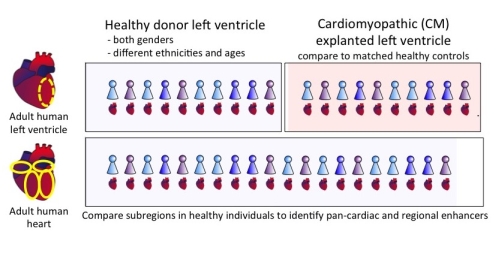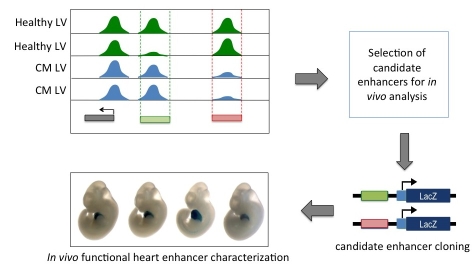|
Heart disease is the leading cause cause of death worldwide, but the genetic risk factors for congenital heart defects and adult cardiac disorders are incompletely understood. Currently, a clear genetic cause can be identified in only ~40% of individuals with adult-onset heart disease and in a similarly low fraction of congenital cases. Distal regulatory sequences, such as enhancers, have been shown to play a role in human development and disease by regulating gene expression, and variation in such sequences is likely to contribute significantly to the etiology of heart disease. However, the genomic location and in vivo function of heart specific enhancers in the human genome remains largely unknown. Furthermore, once a heart enhancer has been identified, it is presently difficult to predict what effect an observed sequence variant could have on its function. These challenges hinder efforts to establish mechanistic links between enhancers and clinical cardiac phenotypes. This study addresses these gaps in knowledge by performing genome-wide enhancer identification and in vivo functional enhancer characterization. These techniques allow us to identify heart enhancers in the human genome and assess activity across heart developmental and disease states. To identify enhancers, we are performing ChIP-seq directly on human heart tissues representing different developmental stages, disease conditions, and sub-regions of the heart. As part of this effort, we are examining inter-individual variation in heart enhancer activity and gene expression and characterizing differences between healthy subjects and individuals with heart disease. A subset of these enhancers will be tested for in vivo activity in a transgenic assay. Please see the Collaborators page for more information on nominating candidate enhancers/enhancer variants for testing. |
Project Overview

|